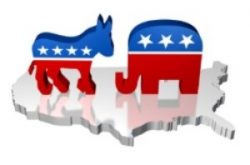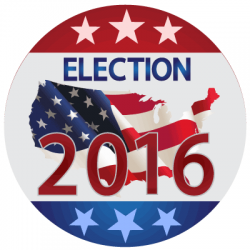12.05.16
‘Tis the Season! Minimizing Risk During Holiday Celebrations
HR Bulletin
If you’re an HR professional, you know that while holiday parties can be fun occasions to get away from normal work formalities, they also bring concerns about alcohol consumption, inappropriate behavior, and even wage & hour procedures. (Bah humbug!)

Sierra HR Partners is here to help with this handy list of HR Best Practices for planning your office parties:
• Employees’ time for party planning, set-up, or tear-down is generally considered compensable because it benefits the employer. Be sure your party committee accurately tracks their work hours, and provide clear guidelines for when they will be considered “off-the-clock” at the event.
• Reduce expectations to pay employees for attending a holiday party by clearly communicating that attendance is voluntary, holding the event at an off-site location, and minimizing business activities such as goal setting or review of the year’s accomplishments.
• Consider no alcohol, a cash bar, or drink tickets to limit alcohol consumption. Make arrangements for sober transportation such as taxis, Uber, or designated drivers.
• Remind all employees and managers about appropriate conduct, anti-harassment policies and social media policies. Maintain your awareness, and enlist the help of other managers, to identify and address problematic issues quickly.
• In the event of an accident or injury, follow normal workers’ compensation claim procedures.
• Promptly investigate any complaints of harassment or inappropriate behavior by interviewing witnesses and taking appropriate disciplinary action.
• But go ahead and enjoy yourself! You’ve worked hard all year and you deserve that glass of champagne or extra cookie, right? (Just be sure to drink responsibly…be on your best behavior…don’t post about it on Facebook…monitor the dress code, and oh…are you clocked in for all of this?)
Want to read the full newsletter? Become an HR Business Partner and receive our monthly updates by email.
Our team of certified and experienced HR professionals are available to support you with legal compliance, training, recruitment, handbooks, audits, policies, background investigations, leaves of absence, performance evaluations, compensation, terminations, on-site HR management & related areas.
As an HR Business Partner, you receive:
- Unlimited phone consultation by certified HR consultants Monday through Friday, 8 a.m. – 5:30 p.m.
- Free monthly legal seminars for designated representative
- Breaking employment news & best practices
- Discounted project rates
- Peace of mind
11.28.16
Breaking News: Federal Overtime Rule Blocked
HR NEWS
Breaking News: Federal Overtime Rule Blocked
For the past several months, California employers have faced tough decisions regarding their exempt salaried employees and how to comply with the revised minimum salary test for exempt classification under the Fair Labor Standards Act (FLSA). This change was expected to become effective on December 1, 2016, but yesterday a federal court in Texas issued a nationwide injunction on the implementation of the new rule.
In October, a group of states filed a lawsuit claiming that the Department of  Labor exceeded its authority in enforcing a change to the federal salary test for exempt classification. The Texas court agreed, and issued a preliminary order to stop the rule while litigation continues. The court also stated that the merits of the case showed “a likelihood of success.”
Labor exceeded its authority in enforcing a change to the federal salary test for exempt classification. The Texas court agreed, and issued a preliminary order to stop the rule while litigation continues. The court also stated that the merits of the case showed “a likelihood of success.”
This means that the federal salary test for an employee to be classified under the Executive, Administrative, or Professional exemptions will remain at $455 per week instead of rising to $913. (An employee still must meet the duties test for these classifications.) California employers are required to comply with state law, which requires weekly compensation of at least two times the minimum wage to meet the salary test. The current minimum wage is $10 per hour, making the minimum salary for exempt employees $41,600 annually. On January 1, 2017, the minimum wage for employers of 26 or more employees rises to $10.50, resulting in an annual salary threshold of $43,680 for employers of 26 or more. For smaller businesses the annual salary threshold remains at $41,600 for the next year.
We know that many employers have already made significant changes to their compensation structures in an effort to maintain compliance with the federal rule. If you have questions about how to respond to this development, please contact us. Our certified Consultants will gladly assist you in understanding your options.
11.09.16
Exempt Classification Mix & Match: New Considerations in Federal and State Rules
HR Bulletin
Exempt Classification Mix & Match: New Considerations in Federal and State Rules
Just when you thought being an employer in California couldn’t get any trickier, the updated federal rule for exempt employees is about to throw you for a loop. Effective December 1, 2016, the minimum salary for an Executive, Administrative or Professional employee will be $47,476 per year for the person to meet the salary test of an exempt employee under the Fair Labor Standards Act (FLSA).

Through the year 2019, this creates one of the rare circumstances when federal law is more generous than that of California. But the comparison of federal vs. state doesn’t end there! You probably know that when laws conflict, an employer must implement the option that is most generous to the employee. Below are additional differences in federal and California overtime rules that you’ll need to consider:
• The federal salary test may be higher, but California’s duties tests for Executive, Administrative and Professional exemptions will still be more protective of employees. (You may refer to the DLSE Glossary for helpful definitions of these exemptions.) Employees will need to meet each applicable test to be correctly classified as exempt.
• The FLSA does not require a salary test for employees classified as Inside Commissioned Sales, Computer Professionals, and Licensed Teachers, Lawyers, and Doctors. However, California requires these employees to meet both a salary and duties test to be exempt. (In this case, you would follow California salary requirements, not federal.)
• The federal law allows nondiscretionary bonuses and commissions to be included when calculating total salary, but California law does not.
• Federal law provides an exemption for “highly compensated employees” based on a minimal duties test, but California law does not.
• California’s minimum wage will increase annually between 2017 and 2023, with a one-year delay for employers of 25 or fewer employees. When it reaches $15 per hour, the minimum salary for an exempt employee will be $62,400 annually. Due to the difference in timing for smaller employers, in 2019, your employee count will determine whether you’ll need to follow the federal or state salary threshold.
• The Department of Labor will adjust the federal minimum salary every three years beginning in 2020, so California employers will need to keep a close eye on both the state and federal rules to know which is higher.
This back-and-forth can certainly feel daunting, but you can manage your employee classifications by looking at requirements one step at a time.
1. Identify all employees in your organization who are currently paid on a salary basis.
2. Carefully review each employee’s responsibilities to be sure they meet the applicable duties test imposed by California law, remembering that the employee must spend more than 50% of his/her time on exempt-level duties in order to meet exempt requirements. Regardless of salary, if the job does not meet this high standard, the employee should not be considered exempt.
3. Identify any salaried employee whose pay is less than $913 per week ($47,476 annually.) You will need to decide whether to increase the salary or reclassify the person as non-exempt.
4. Any employee who will be reclassified as non-exempt should be trained in proper time-keeping practices, including prohibitions on working “off the clock,” and the importance of taking rest and meal periods.
5. Make a plan to repeat these steps each year with an eye on the changes in both state and federal rules.
Want to read the full newsletter? Become an HR Business Partner and receive our monthly updates by email.
10.07.16
Politics At Work: Don’t Let the Election Season Disrupt Your Workplace!
HR Bulletin
Politics At Work: Don’t Let the Election Season Disrupt Your Workplace!
The 2016 Presidential election has been interesting, to say the least. It’s hard to find someone who doesn’t hold passionate views for, or against, either of the main candidates. And as much as we strive for a harmonious workplace, political discussions are bound to come up as we move closer to Election Day.
There are numerous reasons to avoid heated political debate in the workplace including decreased productivity and negative morale. Even if the conversation stays calm, it can be hard to switch gears and focus on work after expending mental energy defending your views. Even worse, these discussions could create risk for claims of discrimination or hostile work environment. Protected characteristics including gender, religious beliefs, race, and age could easily become topics of discussion and a harsh remark may sow the seeds of a legal complaint.
But before you print out that memo banning all political dialogue, it’s important to remember the National Labor Relations Board’s views on concerted activity. Employees, whether unionized or not, have broad rights to discuss the terms and conditions of employment. To the extent that their support for, or opposition to, a candidate relates to job-related topics, prohibiting political speech could be viewed as a violation of their rights. For example, campaign issues like the minimum wage, pay equity, health insurance, and immigration could generate protection under the NLRA.
In addition, California Labor Code section 1101 prohibits company policies that would prevent employees from “engaging or participating in politics” or attempt to “control or direct the political activities” of employees. These rules generally apply to activities outside the workplace, but could be loosely interpreted to cover in-office speech, as well.
So how can you maintain control of your workplace without infringing on employees’ rights? You already have policies in place that can help, and this may be a great time to revisit them. Use your Employee Handbook to remind your staff that:
• Employees are expected to treat each other with respect and courtesy at all times.
• Personal conversations should not disrupt the efficient production of work.
• Solicitations (including political postings) are not permitted during work hours.
• Negative comments about protected personal characteristics will not be tolerated.
• Employees may not make social media posts that give the impression the company supports any political cause or candidate.
• Employees may be permitted paid time off to vote if the work schedule prevents them from voting, or unpaid time off to serve as an election official.

If you do encounter an employee whose political fervor is in violation of your policies, a verbal or written warning may be in order. Be sure to restrict the disciplinary action to job-related behaviors, rather than the employee’s personal views.
And thankfully, November 8th is just a few short weeks away. Regardless of which candidate wins, your employees will soon settle back into normal routines and conversations…for the next four years, at least.
Want to read the full newsletter? Become an HR Business Partner and receive our monthly updates by email.
09.28.16
Did you Know: AB 1066
HR NEWS

AB 1066
This month, Governor Brown signed AB 1066, which significantly changes overtime payment rules for agriculture companies. Wage Order 14, which applies to agricultural occupations, currently provides for overtime after ten hours of work in a workday. The new law will affect employers of 25 or more employees beginning in 2019, gradually reducing the daily overtime threshold to eight hours by 2022. Smaller employers would experience similar incremental changes beginning in 2022.
Additionally, the Department of Homeland Security has announced that a revised Form I-9 will be available by November 2016. Employers may continue using the current version with a revision date of 03/08/2013 until Jan. 21, 2017. After that date, all previous versions of Form I-9 will be invalid.
Employers of 20 or more employees within a 75-mile radius will want to watch for developments in the pending New Parent Leave Act, which would require up to six weeks of unpaid leave for new parents to bond with a child within one year of the child’s birth, adoption, or foster care placement. (This is in addition to any Pregnancy Disability Leave needed by a new mother.) Employers would also be required to maintain group health insurance for the duration of the leave. If passed, the law would become effective on January 1, 2018.


 Labor exceeded its authority in enforcing a change to the federal salary test for exempt classification. The Texas court agreed, and issued a preliminary order to stop the rule while litigation continues. The court also stated that the merits of the case showed “a likelihood of success.”
Labor exceeded its authority in enforcing a change to the federal salary test for exempt classification. The Texas court agreed, and issued a preliminary order to stop the rule while litigation continues. The court also stated that the merits of the case showed “a likelihood of success.”


